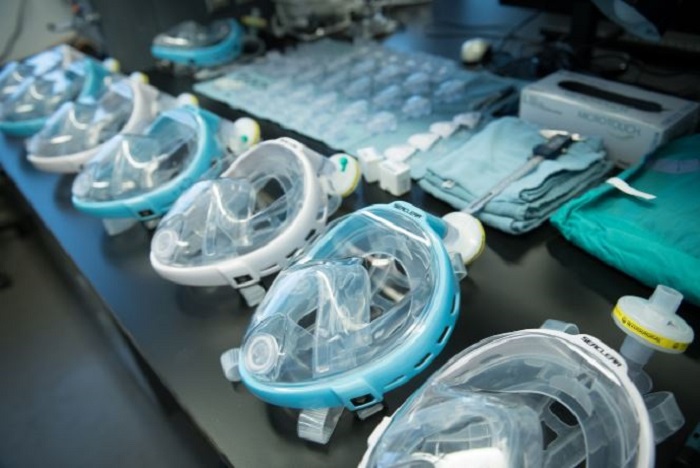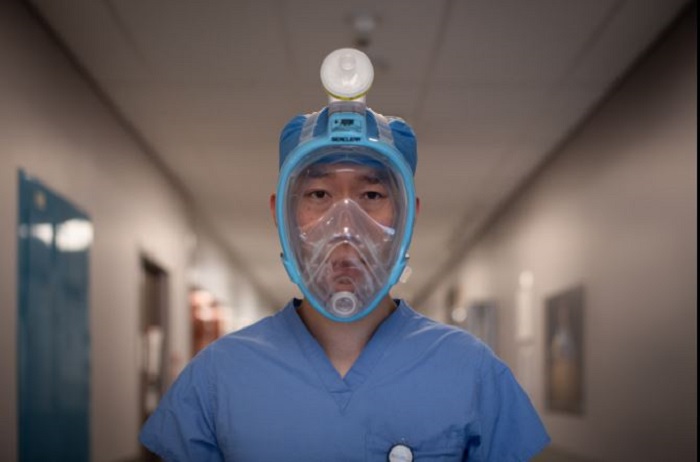Sunnybrook Health Sciences Centre staff say an alternative to the N95 mask has been developed by using a modified full-face snorkel mask for health-care workers to potentially use during the COVID-19 pandemic.

Hospital staff told Global News Radio 640 Toronto the alternative mask was developed due to a limited supply of N95 masks in the world and the coronavirus outbreak still going strong.
“This is an unprecedented time that is highlighting the need for innovative solutions to the challenges health-care workers are facing during the COVID-19 pandemic,” said Dr. Brian Courtney, a cardiologist, engineer and scientist at Sunnybrook.
Courtney is partnered with Dr. Brian Li, who is an engineer and interventional cardiologist fellow at Sunnybrook. Their team is also working to potentially create tie-back surgical masks in-house.
“In an ideal scenario, we wouldn’t need to use either of these masks. But in case we run out, we are developing alternatives that would allow us to keep doing procedures, look after our patients, and keep our health-care workers safe,” said Courtney.
The snorkel masks Courtney and the team are using were donated by Canadian Tire. Courtney said the design also has a way of processing air that would not cause fogging, which was sometimes cited as an issue when it comes to wearing a snorkel mask.
He emphasized how important it is to not only have alternatives to the N95 masks, which has a worldwide shortage, but for Canada to also become more involved in the manufacturing of medical supplies in general rather than being depending on importing from other countries.
“I think that there is some importance that is being placed upon during the current pandemic of just recognizing that there’s a need and some opportunity with respect to being more involved in the manufacturing and design of these sorts of technologies going forward,” said Courtney.

Get weekly health news
The team is testing their designs using the same requirements in place for existing N95 and other surgical masks.
“Using 3D-printing techniques, the stem snorkel at the top of the mask is replaced by an adapter that fits widely available ventilator cartridges to filter particles in the same manner as N95 masks,” the hospital said in a statement announcing the new mask.
Both the masks and the adapter can be reused as long as they are sterilized. The cartridges would be thrown out after each use.
“We have been aggressively testing filtration efficiency, fog resistance, comfort, ventilation, re-sterilization and the risks of inadvertent contamination when putting on and taking off these masks,” said Li.
Courtney said the masks will not be used until they can ensure their safety and effectiveness but said “the results are promising” so far.
Once completed, the hosital will be able to create both the snorkel mask alternative and other surgical masks in-house.
“Hopefully we don’t need it,” said Courtney.
“But if we do need it in order to continue clinical care and look after some other very dangerous conditions that require people to come to the hospital and get looked after, this provides us an opportunity to do that.”
—With files from Briana Carnegie















Comments